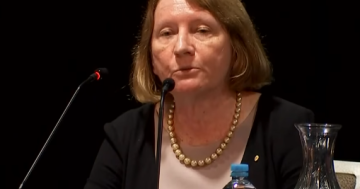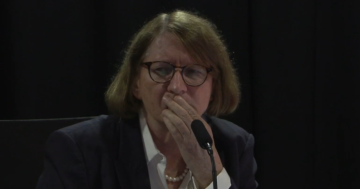
Legal scrutiny of proposed policy has reached a new high since the Robodebt fallout. Photo: File.
Legal teams across all Federal Government agencies are working overtime to scrutinise the legality of proposed policies throughout every stage of development.
While legal checks are the norm during policy preparations, the fallout from the Robodebt scheme, which was ruled illegal long after it was implemented and had already caused untold harm, has placed a greater focus on the law.
But now, at every step of policy formulation across all Australian Public Service departments, lawyers are poring over the minutiae of what will finally be presented to ministerial offices.
The Commonwealth Ombudsman and the Administrative Review Council have been given greater powers to influence policy development and direction.
But so too have in-house lawyers for many agencies.
Region understands that government legal teams are being stretched as their input is being sought more than ever before.
The development is a two-edged sword because, while more care is being taken to determine the legal status of proposals, it is also contributing to delays in policy pipelines.
“Robodebt has been a game changer for every department,” one senior public servant told Region.
“Lawyers are involved to a far greater extent than they were previously.
“Legal teams are extremely busy because no-one wants to go through anything like Robodebt again. Departments are scared about that.”
Another said the ramped-up legal work was noticeable but so too was its impact on actually delivering on policy work.
“Way to slow everything down,” they said.
Frustration is being expressed by some over the further ”bureaucratisation of the APS” and the increased influence of lawyers, while others insist such moves are necessary to avoid a repeat of Robodebt.
In response to questions from Region, the Attorney-General’s Department confirmed that legal scrutiny in policy development was being changed and updated across APS agencies.
Some specific initiatives have been a direct result of the Royal Commission into the Robodebt Scheme.
“The government is providing $22.1 million over four years from 2023-24 and $4.8 million ongoing from 2027-28 to support implementation of the royal commission’s recommendations,” the department said in a statement to Region.
”This includes:
- $2.3 million over four years from 2023-24, and $0.7 million per year ongoing from 2027-28, for the Commonwealth Ombudsman to boost its oversight of government agencies
- $5.4 million over four years from 2023-24, and $1.7 million ongoing, to re-establish the Administrative Review Council to support better government decision-making (recommendations 20.5 and 23.4)
- $5.2 million over four years from 2023-24, and $1.1 million ongoing, for the Office of Legal Services Coordination (recommendations 19.7-19.11) to improve the identification and management of legal risk
- $3.6 million over four years from 2023-24, and $0.9 million ongoing, for the Office of Constitutional Law to improve how legal risk is identified in advice to Cabinet (recommendations 15.1-15.4).
“Work on these measures is ongoing.”
Royal Commissioner Catherine Holmes’s report into the Robodebt debt-collection scheme was handed down in July last year.
It found the program devised by the former Coalition government was “a crude and cruel mechanism, neither fair nor legal”, and that it “made many people feel like criminals”.
It said “people were traumatised on the off-chance they might owe money” and that it was a “costly failure of public administration, in both human and economic terms”.
The Federal Government has agreed with recommendations made by the royal commission and in November made several of these funding announcements in response.
Sixteen current and former public servants were referred by the royal commissioner to the Australian Public Service Commission for investigation over possible breaches of the APS Code of Conduct.
Only one of those investigations has been completed, with no findings or penalties against that person.
The Robodebt automated debt-recovery scheme was piloted in 2015 and fully rolled out between 2016 and 2019 by the Department of Human Services and its successor, Services Australia, with more than 470,000 false debts issued.
It caused extensive grief and trauma, with some recipients reported to have taken their own lives over the illegal notices of debt.
It was officially scrapped in 2020, with the promise of paid debts being refunded in full.
It cost the Commonwealth $1.8 billion in settlement after the Federal Court ruled it a “massive failure in public administration”.
Following Labor’s federal election win in 2022, Prime Minister Anthony Albanese wiped any debts still under review and established the royal commission.



















